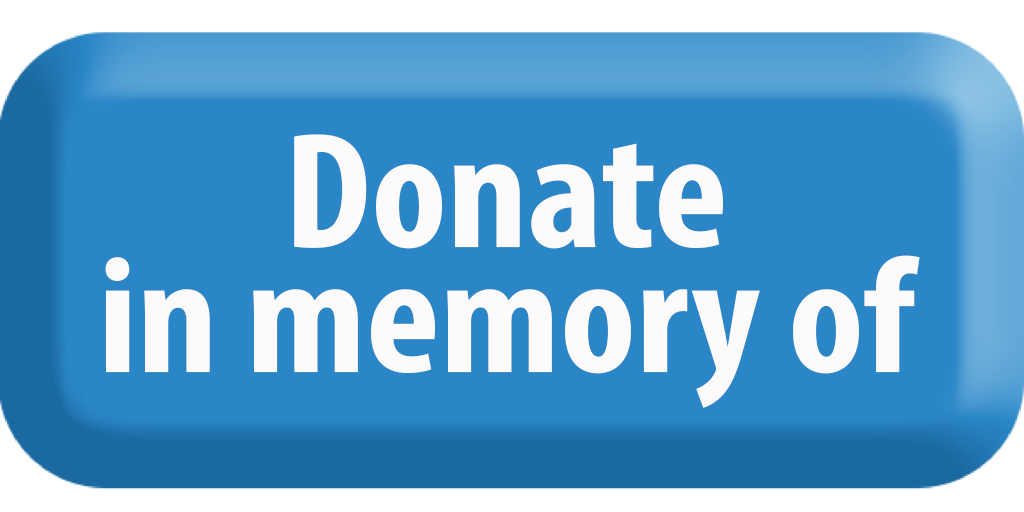Dear Hope Nation,
I apologize in advance for the length of this letter. Let it be some small consolation it could easily be five times as long. Today is Sunday, so you may have the time to sit back and read. Or not. I just have some things I need to say, hoping someone needs to hear them.
Tomorrow Hope reopens, and I have a couple thousand words I want to use as a reminding tool—a tool not a weapon. Hope is a peer recovery center, meaning Bob and Dawn and Jill and Ashley and Dave and Karla and, now, Cindy and Nick and I are peers, fellow wanderers on the path of recovery. We’re lucky enough that a higher power or God or the universe has placed us so we get paid to do the work we do. All the staff is well trained, it is true, and kind and smart and funny, but what qualifies us to be here is no one of those things. We are only fit to work at Hope because we are all in recovery ourselves. We have lived with addictions and are now living without addictions. We are not gurus or spiritual teachers or miraculists. Although the phrase “recovery coach” is popular, I prefer to think of the Hope staff as being more like trail guides—we may help you see some pitfalls and avoid them.
Some of you know the only certificate/license/diploma/degree I keep in my office is a gag one from the University of Bad Breaks and Misunderstandings reading Keith B. Howard is a Formerly Homeless Drunk. I keep that there not just because it brings a chuckle but because it reminds me of my bedrock responsibility: to remember from where I come and to what I am likely to return if I don’t stay focused on my recovery.
One of the things I love about Hope is that we try to honor and support all pathways, whether SMART, 12-Steps (AA, NA, HA etc.), Dharma Recovery, 3 Principles or any other way people find to move from bondage to freedom, from addiction to recovery. Personally, my recovery has been broadened and strengthened by participating in each of the pathways above. While they offer different flavors, they all provide sustenance—people find and maintain recovery following each of these or some combination. What they also have in common is they are based on the idea of mutual support, one person supporting you while you support me. Hope Nation is folks in recovery gathering together not for financial gain, not for fame, not for glory, but simply to pass on what they’ve learned and learn what others have experienced.
Jiddu Krishnamurti, an Indian philosopher, summed up this idea well, as long as “you” is seen in the plural:
“…there is no teacher, no pupil; there is no leader; there is no guru; there is no Master, no Saviour. You yourself are the teacher and the pupil; you are the Master; you are the guru; you are the leader; you are everything.”
You helped me get into recovery. I help her. We help them. They help us. Like some geodesic dome, we manage to support each other and build a structure stronger than any of us could have alone. Really and for true.
Many folks think peer-based recovery began with Alcoholics Anonymous then branched out. Not true. I’d like to tell you a bit about a group begun 180 years ago, Abraham Lincoln, some of my heroes in recovery and, because I am me, some nonsense floating around my head.
(Before I begin, though, a few words about language. I am writing about life in the 1800’s, when words such as “drunkard” and “addict” were in common use and were seen as descriptive rather than pejorative. Today, the favored terms are “substance use disorder” (or “opioid use disorder” or “alcohol use disorder”). When speaking in public, I might introduce myself as “Keith, a person in long-term recovery from alcohol and opioid use disorders,” rather than “Keith, an alcoholic and addict.” This change in language, while much wordier, is less value laden, and overall a good thing. Because I am writing about events of 180 years ago, I hope the more linguistically sensitive will forgive my use of the language of that day. Thank you in advance.)
Back when I was a boy, or slightly before, a group of drunks at Chase’s Tavern on Liberty Street in Baltimore found a solution. On April 5, 1840, six drinking buddies sick and tired of feeling sick and tired, formed a total abstinence group, the Washington Temperance Society (later the “Washingtonian Total Abstinence Society” or the Washingtonians.) They named the group after George Washington, the first President, just as they were the first drunks to join together and quit drinking. (The evil side of me thinks they recognized Washington had been the largest whiskey distiller in the country after his terms in office, and they were hedging their bets. If the not-drinking idea didn’t work out, they could at least apply to Mount Vernon for sponsorship of a drinking club. But. I. Digress.)
These six guys had grown tired of church-based temperance organizations preaching about the evils of liquor—instead, the Washingtonians banded together to support each other. Much like recovery meetings today, this band of besotted brothers met and shared stories of drunkenness and recovery. No religion, no politics, no creeds; just one alcoholic establishing identification and rapport with others and providing support to stay sober. Their thirst for fellowship was able to overpower their thirst for alcohol.
(A brief personal note (i.e., this is Keith speaking as Keith, not as a representative of Hope): while the Washingtonians helped the alcohol abuser, I believe addiction to any substance is much more similar than any differences between substance. I have misused any substance I could get my hands on—pills, weed, acid, meth, heroin, cocaine, alcohol. Any time I put anything into my body it was for a specific effect, but the general goal was for me to find a Keith Escape Vehicle, a way to get outside myself. For the remainder of this letter, I’m going to continue talking about booze, but feel free to insert your self-administered poison instead.)
Word of this tiny group spread, because they all managed to stay sober, and soon drunks were coming from as far away as Philadelphia, New York and even Boston, hoping to discover the Washingtonians’ secret. The secret was there was no secret—they stayed away from religious talk of any kind, they supported each other and welcomed members back who’d slipped, and they demonstrated changed lives. In short, they told what life had been like, what happened and what life was like now. The Washingtonians did amazingly well, growing like crazy throughout the country, eventually documenting about 150,000 recovered alcoholics. Two years after their founding, the Washingtonians suggested each local group set up an anniversary dinner. Being better marketers than timekeepers, they changed their “anniversary” to coincide with the former President’s birthday. By 1842, when Abraham Lincoln spoke to the Springfield, IL, Washingtonian group, meetings were being held in every city and most towns up and down the eastern seaboard. Please remember these dinners were held nationwide and Lincoln in 1842 was only an Illinois state legislator. No one at the time, except perhaps Lincoln himself and his fiancée, Mary Todd, saw any particularly bright future for him.
Here, I’m going to take the first of many turns and share some extended quotations from Lincoln’s address that evening, not because I love Lincoln’s writing style, although I do, but because I’m amazed by his insight into the mind of the addict. While today most thinking and feeling people recognize alcoholism and other addictions as diseases, that wasn’t true 178 years ago, but Lincoln shows an understanding of it here.
First, Lincoln gets the power of peer recovery, the strength of one recovering person to convince others that recovery is possible, that life can be lived without some substance as a mediating force between the addict and reality.
But when one, who has long been known as a victim of intemperance bursts the fetters that have bound him, and appears before his neighbors “clothed, and in his right mind,” a redeemed specimen of long-lost humanity, and stands up with tears of joy trembling in his eyes, to tell of the miseries once endured, now to be endured no more forever; of his once naked and starving children, now clad and fed comfortably; of a wife long weighed down with woe, weeping, and a broken heart, now restored to health, happiness, and a renewed affection; and how easily it is all done, once it is resolved to be done; how simple his language, there is a logic, and an eloquence in it, that few, with human feelings, can resist. . .Nor can his sincerity in any way be doubted; or his sympathy for those he would persuade to imitate his example be denied.
On this point, the Washingtonians greatly excel the temperance advocates of former times. Those whom they desire to convince and persuade, are their old friends and companions. They know they are not demons, nor even the worst of men. They know that generally, they are kind, generous, and charitable, even beyond the example of their more staid and sober neighbors.
While I blush and demur at the notion I am more “kind, generous and charitable” than my ever-teetotalling neighbors, it’s remarkable for Lincoln to have identified and stressed the humanity, the decency of the addicted. (Another aside: above, I tried typing “teatotaling,” assuming the word came from folks who abstained from alcohol and only drank tea. I was wrong, which led me to spend another five or 10 minutes studying its etymology. No two experts seem to agree and no single explanation makes a lot of sense. I guess it will remain a mystery to me until the next time I’m facing a deadline, writing at 10:30 at night and want to waste time on something that makes no difference to anybody.)
Next, Lincoln lays out the heart of the matter:
In my judgment, such of us as have never fallen victims, have been spared more by the absence of appetite, than from any mental or moral superiority over those who have.
With this one sentence, Lincoln sums up the situation of the addicted—we have an appetite for our substance(s) that is not present in most humans. The thirst I feel for alcohol is fundamentally different from that of the social drinker or the teetotaler. I will never know that normal thirst, nor will those others know mine.
If we see a pregnant woman with pica (eating things that are not food) picking up and eating dirt or clay, although we may think it unusual, most of us don’t cast judgment on the eater. We don’t share her taste, her appetite—we don’t have geophagia, but we don’t see her as being less than we are. This is very different from the historical (meaning up until a generation ago) view of alcoholism and other addictions as moral failing, an inability to control oneself. Like pica (of which geophagia is but one slender branch), addiction is a disease.
For the next few years, the Washingtonians continued their growth, with camp meetings, a set of national speakers and a series of scandals involving those orators—drunkenness, adultery, embezzlement, the usual crimes—and lost their focus on the individual drunkard and his or her path to sobriety. Add to this an expansion of their message and methodology into suffrage, education reform and the abolition movement. Finally, the Washingtonians believed God need have nothing to do with getting sober; this position obviously caused conflict with the conservative Protestants of the day. After all, the Second Great Awakening—a revival whose focus was on “soul winning”—had just swept through America, leaving Baptist and Methodist churches in a stronger position than ever. The Washingtonians, using some of the revivalists’ methods and denying the primacy of God, were almost certainly doomed. By 1847, a mere seven years after they’d begun, the Washingtonians had devolved into a spent force, many of its early leaders having made money through speaking engagements and later converts returning to drink. Still, they’d shown a way—some would say THE way—for alcoholics to recover—through identification and group support.
Today, as in 1840, 1900, 1920 or 1980, getting clean and sober is hard for an addict or alcoholic; staying sober is nearly impossible without some kind of active program of recovery. When I got sober back in 2007, I was lucky enough to find a ready-made and healthy group of people who’d overcome their alcoholism. Living in a shelter for homeless veterans in Nashua, NH, I was within a 45-second walk of a noontime meeting of such folks. What kind of meeting that was makes no difference—I had access to peer recovery, one person helping another find and maintain recovery.
Today, at Hope, such groups exist under the banners of Alcoholics Anonymous, SMART Recovery, Recovery Dharma and the Three Principles. Not everyone is so lucky. Tomorrow, Monday, July 13, Hope will reopen from 3-7. I hope to see many of you there and many more of you over the coming days and weeks. I am grateful for each and every one of you, and stand ready to support you in your recovery, whether through a (metaphorical and still socially distanced) pat on the back, a kick in the butt or just a thought to ponder. I am truly a lucky man to be placed where I am today, but given enough gratitude any of us can say amen to that sentiment.
You matter. I matter. We matter.
Keith
p.s. (and isn’t it amazing this is the first time, to my knowledge, I’ve used a postscript to keep on talking) This letter marks the end of the ship’s log kept on the voyage across the Sea of During. We have arrived at After! We will now close this log and put it on the shelf.
Still, some folks have said they’d like me to continue writing daily letters. That will not happen. Although I haven’t talked about it much in these letters, I am executive director of a moderately large organization and need to raise funds, supervise staff, meet with members, work with a board of directors etc., etc., etc. I don’t have the energy nor the hours in the day to write 600-1000 words daily.
I mentioned the ship’s log being placed on the shelf. For a variety of reasons, a ship’s log needs to be kept completely up to date, with daily entries. We’re done sailing, but now we’ve got to blaze a trail across the Land of After. That will require a trail journal, which may only have entries on a weekly or even biweekly basis. I’ll do my best.



